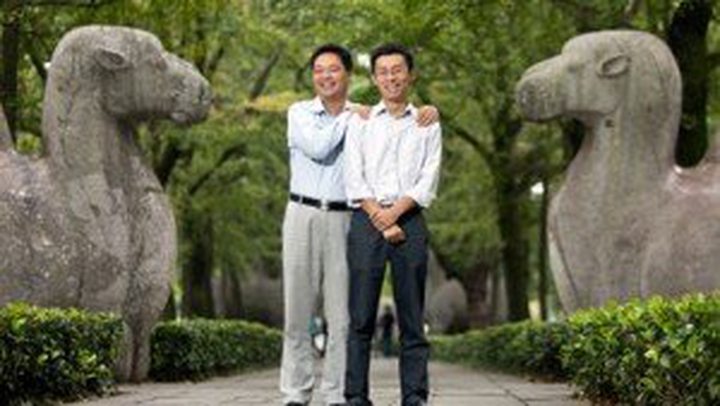Asia's Travel Business: Tuniu, China's Package Tour Aggregator

Rising affluence, looser visa rules and pent-up curiosity has propelled a generation of Chinese to vacation overseas. For most a vacation means an all-inclusive package tour sold by one of thousands of local travel agents that compete on price and availability. While business travelers flock to online reservations, mass-market leisure travel is still a brick-and-mortar business. But as more Chinese commerce shifts online, travel websites are reeling in customers like Su, who takes vacations twice a year, always in a group. “I don’t have time to fix the details,” he explains.
Su booked his Greek tour on Tuniu.com, a travel aggregator that specializes in leisure trips. Founded in 2006, it serves 10 million customers a year and expects to ring up $565 million in transactions this year. Its business is built on the proposition that online booking offers the best way to pick a tour and to ensure that travel agents, who supply the tours listed on the website, deliver on their promises. “Our customers are everyday consumers. They need quality service at the best price available,” says Yu Dunde, CEO and cofounder.
There’s room for growth: Last year only 12% of vacations were booked online, according to China’s iResearch, which forecasts that this share will rise to 26% by 2015. Leisure travel is the fastest-growing online category, rising 55% to $3.4 billion in transactions in 2012. In online revenues Tuniu ranks first in package tours, with a 17% share, and second in overseas bookings behind the market leader, Nasdaq-listed Ctrip.
While Ctrip and its Expedia EXPE +0.46%-invested rival,eLong LONG +1.92%, focus on Chinese business travelers, Tuniu appeals mostly to cost-conscious vacationers who prefer to travel in groups. As with Japanese tourists in the 1980s, Chinese groups trailing a flag-waving guide have become a familiar sight in destinations from Paris to Bangkok. “We don’t sell tickets or hotels. We sell packages,” says Conor Yang, who joined the Nanjing company in January as CFO.
Tuniu aggregates tours organized by 3,000 suppliers and gathers data from customers, who get coupons for reviews and can call to complain and seek help if tours go off the rails. It also offers “self-guided tours” with fixed departure dates and fully customized trips. Like other online aggregators, it makes money by taking commissions and charging for placement on its site. Its cash flow is helped by prepayment from customers and the requirement that suppliers complete the tour before collecting payment.
Customers can book everything online or by phone, including submitting passports for foreign visas. Some, like Su, prefer to visit service centers, located in 15 cities, to sign and collect documents. While margins are higher on overseas trips, Tuniu sells plenty of domestic package tours to customers like Zhou Chunrong, who recently booked a five-day tour of the mountainous southern province Guizhou for her family of three (total cost: $2,460). Zhou, who works for a finance company in Beijing, had spotted an ad for Tuniu on the subway. It was her first experience of online travel, and she enthuses about the convenience. Age 38, she’s never been overseas. “I’d like to visit Europe,” she says.
China’s love affair with foreign trips has been tainted, however, by persistent complaints and occasional protests over ultracheap tours that hustle tourists into overpriced shops and extort fees for excursions. A new tourism law that took effect on Oct. 1 bans compulsory shopping on package tours (it also forbids “uncivilized” behavior by tourists). This has led agencies to hike prices to destinations like Hong Kong and Thailand, with prices doubling on some tours. Thailand’s travel authority recently cut its full-year forecast for Chinese arrivals to 3.8 million, down from 4.2 million, according to the Bangkok Post.
Tuniu began as a website for travelers to share photos and journals. Yu, now 32, met cofounder and COO Yan Haifeng, 31, at university in Nanjing, where they ran a club for Internet enthusiasts. Yu, a math major, graduated first and moved to Beijing for work. Yan, a finance major, stayed in Nanjing and started an online business called Tuniu, which contains the character for ox, a symbol of strength and reliability. “We launched a tour-booking service because customers wanted more than information,” says Yu. Their first office was a 750-square-foot apartment that housed ten employees, including the two cofounders. Five former colleagues and friends pitched in seed capital, and they began wooing travel agents as suppliers.
By 2008 monthly transactions had topped $300,000, and Tuniu had found its first outside investor, Shanghai’s Gobi Partners, which stumped up $2 million. Thomas Tsao, a partner at Gobi, says he was looking for ways to invest in outbound Chinese travel. “They offered a wider selection than anyone else in the industry was doing at the time,” he says.
Tsao also took note of the bond between Yu and Yan, who still share an office-cum-boardroom in their roomy new headquarters in a software park outside Nanjing. Job titles notwithstanding, Yu focuses on internal operations while Yan deals mostly with tour operators, and the two roles fit their personalities: Rail-thin Yu is quietly intense; portly Yan is a gregarious talker. “In many startups there are lots of egos involved. They’ve found a partnership that works,” says Tsao. Yan says he and Yu read about cofounders at iconic U.S. firms like Google GOOG +13.8% and Microsoft and thought it was natural to form an equal partnership. “We absorbed a lot of Western values,” he says.
Whatever the recipe, it has proved alluring to venture funds. In August Tuniu raised $60 million from DCM and Temasek Holdings in its fourth funding round, bringing its total raised since 2008 to $115 million. Its internal valuation is now from $350 million to $400 million. Yang says the firm made its first profit in the first quarter, but he expects full-year profits to be negative as it continues to invest in systems and people (current head count is 1,200).
Could an IPO be next? The addition as CFO of Taiwan-born Yang, who played a key role in U.S. listings for social media site Dangdang and advertising platform Airmedia Group, suggests such an aim. A source briefed on the firm’s plans says year-end 2014 is the target. The company’s cofounders say they want to build a world-class business. “An IPO would certainly help, but it is just a step in the entire process,” says Yu.
Will China’s ingrained attraction to package tours remain as younger urbanites move to the fore? Tuniu executives say that any attrition is offset by the ranks of first-time and unsophisticated travelers who stick to regimented tours, but they’re diversifying just in case. “More people will choose self-guided tours as they become richer,” says Yan. But, he adds, “Package tours will be here for a very long time.”
For now Tuniu has carved out a valuable corner of online travel, says Jinkyu Yoon, an analyst at Nomura Securities in Hong Kong. “Tuniu is a niche business and could be a very fast growth model. It’s a significant value-added service,” he says. But Yoon, who covers Ctrip and eLong, warns that a stronger push by Tuniu into self-guided tours would put it on a collision path with Ctrip, which is going into leisure. As with hotels and airfares, a commoditized market for tours favors the larger player.
Yan argues that Tuniu’s strength lies in its relationship with tour agencies and its ability to screen out bad operators. “We set standards to let the suppliers know the types of products that qualify for our website. If a product turns out to be bad, nobody buys it,” he says.
Customer feedback on tours to the Maldives, a popular destination for Chinese travelers, is mostly positive. But occasionally the feedback loop hits home, with complaints about the hotline or a ticket delay at an airport. “You have to be supervigilant when you are booking on Tuniu,” one warns. The watchers are always being watched.





